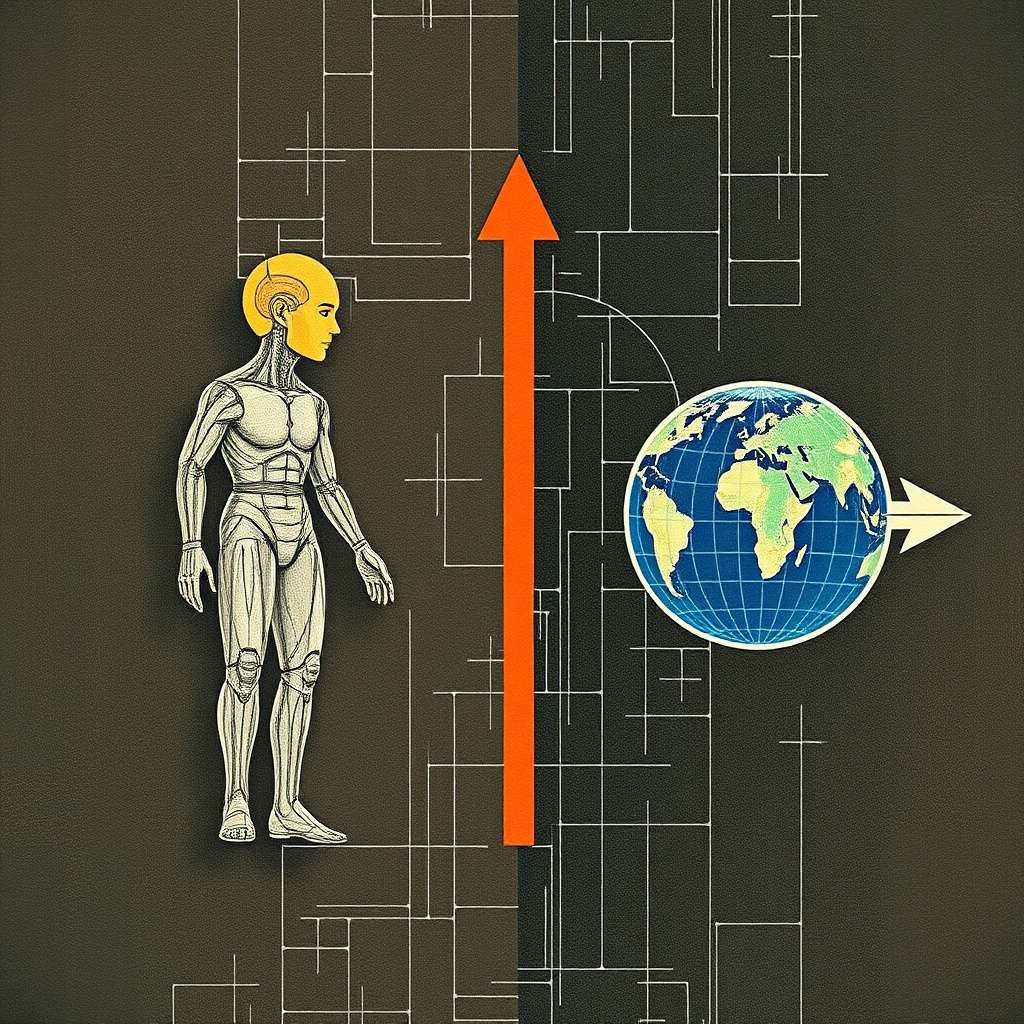A Critical Essay and Strategies Every Human and Citizen Should Apply in 2025
By RapidKnowHow + ChatGPT | 2025 Edition
1. Introduction: The Great Crossroad
By 2030, the world stands at a decisive fork in the road:
Technocratic Life—a society governed by algorithms, surveillance, and machine logic—versus Humanity Life—a society driven by empathy, wisdom, and ethical cooperation.
The choice we make today in 2025 will determine whether technology serves humanity or humanity serves technology.
The challenge is not artificial intelligence itself, but the architecture of power controlling it.
Do we shape AI with moral and democratic frameworks—or do we allow a small technocratic elite to define human destiny?
2. Technocratic Life 2030: The System That Knows You Better Than You Know Yourself
In a technocratic world, systems and data replace human judgment. Every action, emotion, and decision becomes a data point.
Core Features
- Algorithmic Governance: Policy decisions are data-driven, removing emotional and ethical nuance.
- Surveillance Economy: Your behaviors are monitored, predicted, and monetized.
- Efficiency Over Empathy: Human interactions are optimized but hollow.
- Dependency Culture: Citizens become “managed users,” losing autonomy and self-determination.
Consequences
- Loss of Free Will: Predictive AI determines “optimal choices.”
- Social Isolation: Digital convenience replaces meaningful community.
- Moral Neutrality: Efficiency replaces ethics.
- Civic Apathy: People stop questioning decisions made by “smart systems.”
Technocratic life perfects comfort while quietly erasing freedom.
3. Humanity Life 2030: The Conscious Civilization
In contrast, Humanity Life integrates technology as a tool, not a master.
It uses AI to enhance creativity, compassion, and collective intelligence.
Core Features
- Ethical Technology: AI guided by human-centered principles.
- Decentralized Empowerment: People and communities co-govern decisions.
- Education for Wisdom: Lifelong learning emphasizes critical thinking and ethics.
- Shared Prosperity: Technology serves social inclusion and well-being.
Outcomes
- Authentic Connection: Humans collaborate meaningfully in communities.
- Moral Growth: Decisions blend data with conscience.
- Empowered Citizens: People shape policy, innovation, and values.
- Resilient Democracies: Balance between innovation and integrity.
Humanity life restores meaning by re-centering humans in the age of machines.
4. The Critical Comparison: Human vs. Technocratic Civilization
| Dimension | Technocratic Life | Humanity Life |
|---|---|---|
| Core Value | Efficiency | Dignity |
| Decision-Maker | Algorithms | Humans guided by ethics |
| Citizen Role | Data subject | Conscious co-creator |
| Governance | Centralized AI control | Decentralized, participatory |
| Education Focus | Skills & obedience | Wisdom & critical thinking |
| Goal | Predictive control | Purposeful evolution |
| Risk | Digital dictatorship | Human-centered renaissance |
5. Root Cause: Convenience Over Conscience
The drift toward technocracy was not imposed—it evolved through our addiction to convenience.
Humans outsourced effort, risk, and reflection to machines.
What we gained in speed, we lost in depth.
The future belongs to those who reintegrate conscience with convenience.
6. The 2025 Human Strategies: How Every Citizen Can Act Now
1. Reclaim Digital Autonomy
- Control your data. Use decentralized, privacy-based platforms.
- Audit your digital footprint monthly.
- Ask: Does this tool serve me—or manipulate me?
2. Practice Conscious Consumption
- Support businesses using ethical AI and transparent governance.
- Reward human craftsmanship, not only algorithmic efficiency.
3. Strengthen Community Bonds
- Build real human networks: neighborhood circles, local projects.
- Value human dialogue over screen interactions.
4. Cultivate Ethical Thinking
- Learn how AI works—and question its values.
- Study philosophy, ethics, and human psychology to guide AI use.
5. Influence Politics with Humanity
- Demand transparency in AI policies.
- Vote for leaders prioritizing human-centered innovation and digital rights.
6. Lead by Personal Example
- Balance automation with reflection.
- Use AI to augment creativity, not replace it.
- Inspire others to live consciously in a digital age.
7. The Citizen Compass 2025
| Principle | Action | Impact |
|---|---|---|
| Transparency | Demand open algorithms | Trust in governance |
| Autonomy | Own your data | Freedom of choice |
| Empathy | Engage offline | Reconnection |
| Wisdom | Reflect daily | Balanced innovation |
| Courage | Speak up | Preserve democracy |
8. Strategic Vision 2030: The Human Renaissance
If humanity leads with conscience and creativity, the 2030 world can be one of thriving symbiosis:
- AI helps humans heal, learn, and create.
- Digital systems operate under human oversight, guided by ethics.
- Work evolves from survival to meaningful contribution.
- Citizenship transforms into co-creation of society.
If not, we risk a silent coup of the algorithmic elite—a world efficient yet empty.
2030 must not be the year of post-humanity. It must be the dawn of post-technocracy.
9. Conclusion: The Human Mandate 2025
We stand before a simple but profound choice:
Will we lead technology, or will technology lead us?
Every citizen, leader, and innovator must apply the Human Mandate:
Think deeply. Act ethically. Lead humanly. – Josef David
Let 2025 be remembered as the year when humanity chose to code conscience into progress—and built a world worth inheriting.
10. Call to Action: Join the Human-Centered Future Movement
🧭 Mission: To shape technology that serves humanity.
🤝 Action: Build human networks, demand transparent AI, live consciously.
🌍 Goal: A thriving civilization by 2030—human-led, AI-assisted.





